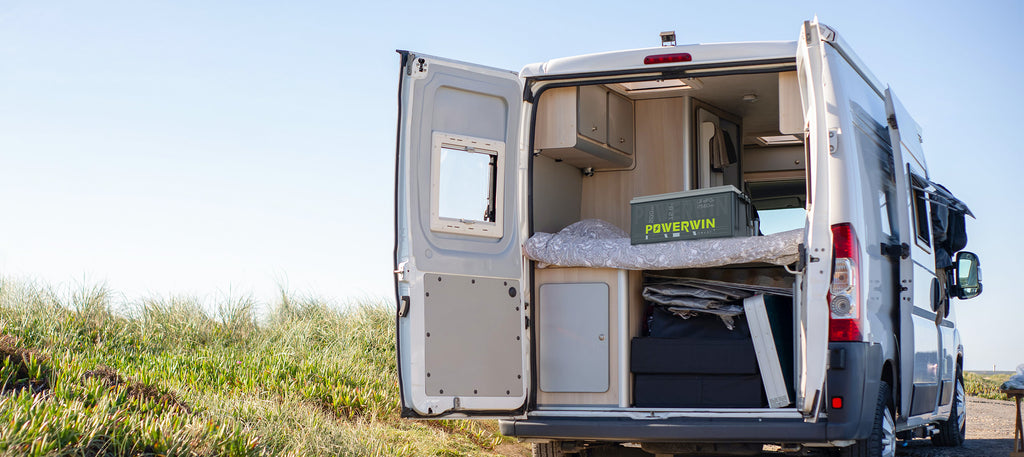Battery is a necessity in people’s daily life, no matter for a little outdoor camping, vehicle long roadway journey, even or in houses as emergency power backup. For most camping-lovers, it is quite tough to choose the right-size RV battery at the very beginning period, and you may get confused: what size battery does my RV take? and that may cause unnecessary cost or electrical redundancy. To help you become more familiar with selecting your favorable and appropriate battery, we’ve listed everything basic you need to know about RV batteries below.
Major materials of RV can be divided into four parts, lead-acid, absorbent glass mat, gel cell, and lithium (LiFePO4).

Major materials of RV can be divided into four parts, lead-acid, absorbent glass mat, gel cell, and lithium (LiFePO4). Materials which have biggest difference to each other, are LiFePO4 and lead-acid. Lead-acid batteries are heavier and bigger than LiFePO4 one, and will gradually lose their capacity with the nature time goes by. Also, it is less durable for its high maintenance requirement, and for this feature, it is super cheaper. While LiFePO4 batteries, with less weight and smaller, do not cover too much space of your RV though it is quite expensive. And they need less maintenance for the durability of lithium, which indirectly lowers campers’ cost expense. Thus, on one hand, lead-acid batteries are considerable and nice for people who do not camping frequently; on the other hand, Lithium(LiFePO4) batteries are more suitable for those who would like to camping and drive RV often.
Removing the material, other elements also require you to focus on.
Removing the material, other elements also require you to focus on. First, determine your power requirements: Calculate the total power consumption of your RV appliances, including lights, refrigerator, water pump, and other electronics. This will give you an estimate of your daily power usage. Second, consider battery capacity. Look for batteries with sufficient capacity to meet your power needs. Battery capacity is measured in ampere-hours (Ah). The higher the Ah rating, the longer the battery can provide power. Third, assess your battery setup: Determine if you have a single battery or a battery bank. If you have a battery bank, the total capacity will be the sum of the individual battery capacities. Forth, consider factors like size and weight: Ensure that the battery size fits in your RV's battery compartment and that the weight is manageable for your vehicle.

Besides, while facing diversified choices and items, consult a RV manufacturer or a professional: For specific recommendations tailored to your RV model and usage, it's best to consult your RV manufacturer or a professional in RV battery systems.
Though choosing the right-battery-size may seem too difficult for you when you are a rookie in camping, it will be easier after reading this guide and consulting with those professional manufacturers. With the more choosing experience you have, the less the thought of “what size battery does my RV take” would appear. We hope you will get your fruitful knowledge on your camping process, good luck to every RV battery user.





